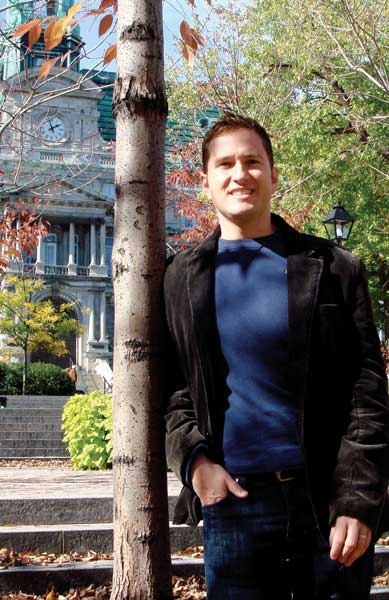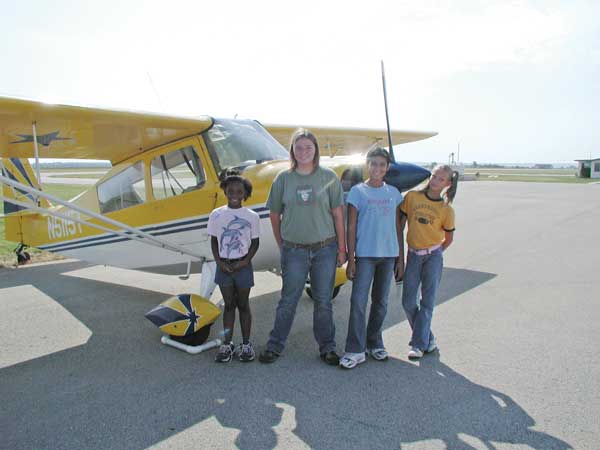By Robby MacBain
Nurse, Activist, and Politician: Alumna Brings the Change We Need

If a general referendum was held to determine the most popular buzzword of 2008, chances are that “change” would win by a landslide victory. But for a nurse like Irma Silverstein Rochlin ’45, who has been a first-hand witness to some of the most important events in recent American history, change is the only thing you can rely on over a lifetime.
Rochlin came to Johns Hopkins as a nursing student in the midst of World War II. She recalls the class of 1945 as “idealistic. We all expected to help with the war effort.” After graduating, Rochlin went directly into the Army Nurse Corps. She served in Alabama and North Carolina, caring for returned servicemen too ill to be discharged.
Conservation was a vital part of the war effort and played a central role in clinical nursing practice. “We would wash surgical gloves, powder them, and put them up for autoclaving. All syringes were glass then, and we reused them. We went through the needles after they were sterilized and sharpened them,” recalls Rochlin.
One of Rochlin’s most important acts of political activism occurred in 1969. A resident of the San Francisco Bay Area, Rochlin volunteered as a nurse to care for marchers participating in the People’s Park demonstrations, which came to symbolize the radical political differences that divided the country during the Vietnam War era.
In the 1970s, Rochlin moved to Florida and delved into local politics. She was elected to the Florida House of Representatives in 1984, where she was asked to lead the charge on some of the most important health care initiatives of the day. Many proposals brought out to air in Florida during Rochlin’s tenure as a state representative are now being played out in the national political arena. “Florida was a bellwether state, and we came out with the most advanced legislation of the time,” says Rochlin.
She looks back with particular pride on a bill she sponsored that rescinded the licenses of doctors who prescribed steroids to high school athletes, which set the bar for similar legislation around the country. She drove through legislation enabling nurses in public health settings to prescribe medication without a doctor’s visit, saving the state of Florida $900,000 in the first nine months after it was passed. Other accomplishments include improved medical care for prisoners, funding for treatment of HIV and multiple sclerosis, and increased insurance rights of the developmentally disabled.
In 1945, says Rochlin, “I felt like I was seeing the birth pangs of nursing.” Despite all the advancements and improvements in nursing, however, there is something that Rochlin believes should never change-the motivation at the root of all nursing practice. It is the same driving force that led her to become such an effective politician: the simple desire to serve and care for another person.
On the Cutting Edge: Jeff Baldwin Discovers the Impact of Research

Jeff Baldwin ’94 says his initial motivation to enter the field of clinical trials research wasn’t particularly complicated. He wanted to help people – as many as he could. At the time, he was working as a pediatric nurse in Florida, a job he fondly recalls as his “first love.” However, when Baldwin began working as a nurse for clinical pharmaceutical trials, he was struck by the potential benefits that cutting edge research held for patients. “In some cases, we were seeing very dramatic impacts… using treatments that were not yet approved by the FDA.”
Since his first exposure to clinical trials, Baldwin has steadily progressed into more supervisory positions. After several years overseeing Amgen’s clinical trial monitors in the Southeastern US and Western Canada, Jeff was promoted to a position as Supplier Governance Senior Manager with the company last year. While his early work in research consisted largely of one-on-one contact with individuals, Baldwin’s more recent positions have brought increased perspective on the large-scale impact that research can have.
From a managerial standpoint, he is able to watch the progress of new treatments as they move from the experimental stage toward becoming important elements of widespread therapies. Looking back at his early clinical trial days in Florida, Baldwin says that “out of those trials came some of the treatments that are now commonly prescribed as part of HIV therapies. There’s a lot of satisfaction that I’ve derived from my career path. The work I do now is impacting thousands of people every day.”
Working in clinical trials has brought Baldwin into contact with thousands of participants, each with their own unique reasons for involvement. “Some are motivated out of pure altruism,” says Baldwin. “Some have gone through other therapies that weren’t working and are looking for new options. There are some who can’t get health insurance coverage.” What is understood by everyone, though, is that their participation could lead to discoveries which will positively impact the lives of thousands.
Baldwin looks back on his days at Hopkins with pride and a sense of gratitude. “Hopkins,” he says, “gives you insight into the research side of nursing – it shows you that there’s so much more than you think that goes into meeting the challenge of health care every day.” Without this early awareness for the breadth of health care research, Baldwin says his career path could well have been different.
Hopkins Nurse is Flying High

“I just love taking care of patients no matter what’s wrong with them. The more challenges that are presented to me, the more interested I get,” says Sandra Montague Winfield ’70, who had always dreamed of becoming a nurse. “My first nursing paycheck seemed unreal to me since I was actually doing something I wanted to do!” Whether in her nursing career, hobbies, or her personal life, Winfield seems to have a knack for turning her dreams into a soaring success.
Winfield arrived at Hopkins in 1966, “almost 17 years old and green.” Her first instructor was Martha N. Hill, now the Dean of the Johns Hopkins University School of Nursing, who guided Winfield through the basics of nursing, from making a bed correctly to taking vital signs. Her first nursing positions were at the Johns Hopkins Hospital, working in a surgical recovery unit and later in a pediatric ICU.
One of her first nursing challenges came in April 1968, following the assassination of Martin Luther King, Jr., when civil order disintegrated in Baltimore as riots swept across the city. The Hopkins medical campus was locked down and Winfield and her classmates were called upon to relieve the exhausted nursing staff in the hospital. Although she was horrified at the spectacle unfolding right below her dorm window, she had little time to reflect on its significance. “We simply responded to the need to staff the hospital for relief without question,” she remembers.
In the 1970s, Winfield relocated to Houston, Texas, where she worked at the Houston Methodist Cardiac Catheterization Research Lab and was introduced to two of the loves of her life. The first was her husband, Jerry, and it was Jerry who introduced her to the second passion, flying. The couple was married in 1973, but Winfield’s love for flying didn’t take off until 1997. She learned to fly in an aerobatic tail-wheel aircraft -a plane that rests on a small rear wheel, meaning that it tilts upward while on the ground. “Steering it is kind of like pushing a backwards shopping cart down the runway,” explains Winfield.
Today, Winfield lives in the Fort Worth area and serves as the chief of her community’s EMS crew. An EMT’s work is very different from a nurse’s, but after many years in hospitals, she says, “I have a much better idea what I’m preparing the patient for.” With her background in nursing, Winfield makes sure that her team’s pre-hospital assessments are as timely and accurate as possible.
Living and working in the busy Forth Worth area, where traffic is often bad, could be stressful for some people, but not for Winfield – she commutes by air. “I go out on ambulance calls during the night and I fly during the day,” she says. “What could be finer?”